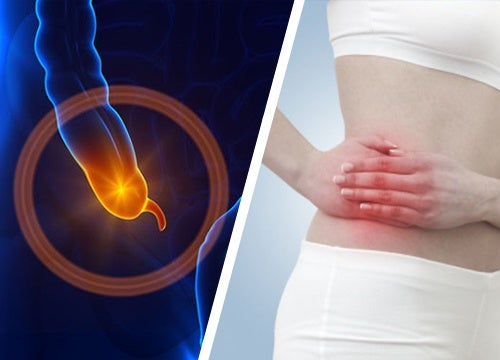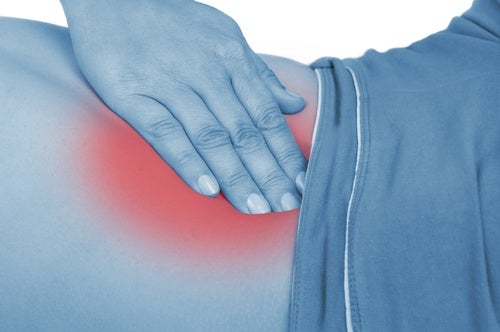
Inflammation of the appendix is a very common ailment at any age. In the majority of cases, surgery is done to remove that small segment that "stands out" from the large intestine, located near the small intestine. You can read this article to learn more about appendicitis: what is, is, etc.
Appendix: useful for something?
Many people say that the appendix is useless and therefore doctors decision is to remove it when it starts to bother. Although this small organ has functions related to the immune system, it is not considered to be essential. Part of the harmony and the proper functioning of the body, so it must not downplay. As it is popularly, "something it is there".The Appendix becomes inflamed for unknown reasons causing what is called appendicitis. Some relate this swelling with poor nutrition or the tensions and pressures. However, nothing is proven scientifically, especially when it affects very young children.
This pathology is dangerous because, if it is not in time, you can drill Appendix and shed a part of the intestinal contents throughout the body. Harmful, toxic substances and bacteria negative would by all the abdomen. This condition is called peritonitis and is very serious, because it can cause a major infection and even death.

If the woman is the one who suffers peritonitis, can infect the ovaries or fallopian tubes and cause infertility.
How to detect an inflamed Appendix
There are symptoms that are characteristic and others that are shared with other diseases, so it is necessary to pay close attention to avoid a wrong diagnosis that may worsen if the Appendix perforates. Not all patients have the same symptoms, or all together. Some of the most frequent are:- Nausea or vomiting
- Strong and sudden pain in the right lower part of the abdomen
- Strong and sudden pain around the navel
- Pain in the area to the press and deepens when removing the hand or fingers
- Body temperature between 37.5 and 38° C
It is not always easy to detect appendicitis symptoms because it is confused with the signs before a flu or an attack on the liver. If not, who diagnosed inflammation in the Appendix, the operation is performed and is not can also be.

Recommendations to avoid problems in the Appendix
On the basis of which develops appendicitis by poor diet and emotional problems, we could then change some habits. This will not guarantee that the Appendix never drill, but we will at least reduce the possibilities.Calm down
Emotional relaxation is very important and it is necessary to do this periodically. Anxiety, stress and nerves bring negative consequences to our health. He is not living a hurried, angry, worried, unhappy or thinking in the future. Give yourself time to do the things that you like and that "they fill the soul" such as reading a book, taking a NAP, play with your kids or take a walk in the Park.Get diet

A balanced diet is vital to feel well and that the intestine enjoyment of good health. Also to prevent appendicitis. Prefer more quantity of intakes, but smaller, to much to eat two times a day. Prevents the animal fat, sausages, dairy products, sugars and refined flours. All they do accumulate toxins and padezcamos intestinal problems. You prefer whole grains, fruits and vegetables, legumes and nuts.
It exercises
Practice sport two or three times a week to relieve tension and enjoy a little bit of life, leaving aside so many obligations and problems. In addition, you can maintain a healthy weight and escape from the routine of sitting at the computer all day. Walk, bike, run, nothing, dances, jumps... Whatever, but keep the body in movement.After the operation, what?
If you have operated from appendicitis or peritonitis, need to know that for a while you must make a special diet and take care. Hospitalization in a mild case of inflammation of the appendix is between 2 and 6 days. If, on the other hand, the picture was more serious, perhaps a couple of weeks, all depends on the case.It is important that the food is very healthy and quality after the operation to remove the Appendix. In this way your intestines always will be clean and you earn no toxins. During the three months following surgery, not consume:
Sugar or white flour
The refined are bad for health in general and for nothing good if you just operate. They generate many toxins that accumulate in the colon and lead to the emergence of germs.Junk food

In this group we can count the fried, processed and cured meats. Fats are "stuck" to the walls of the intestine and also reach the blood.
Food of animal origin
It would be good that for a few months you follow a vegetarian diet or vegan, eliminating dairy, egg and red meat meal. All these foods not only have hormones and other harmful products, but they, for example, in the case of milk, cause a coating on the walls of the intestine.Other foods that you should avoid
- Alcoholic beverages
- Coffee
- Tea
- Chocolate
- Spicy sauces
- Very strong seasonings

0 comentarios:
Post a Comment